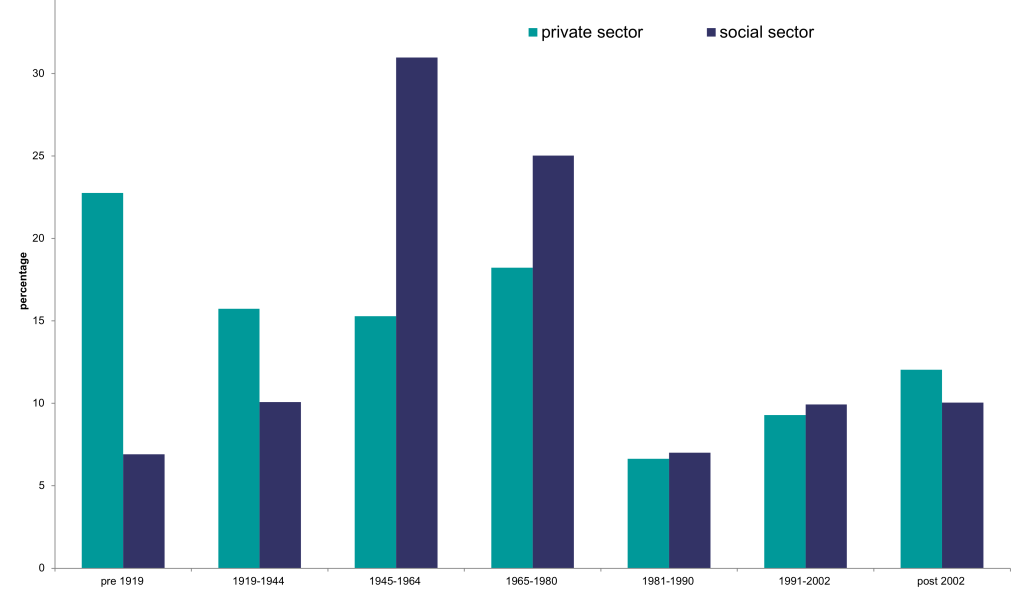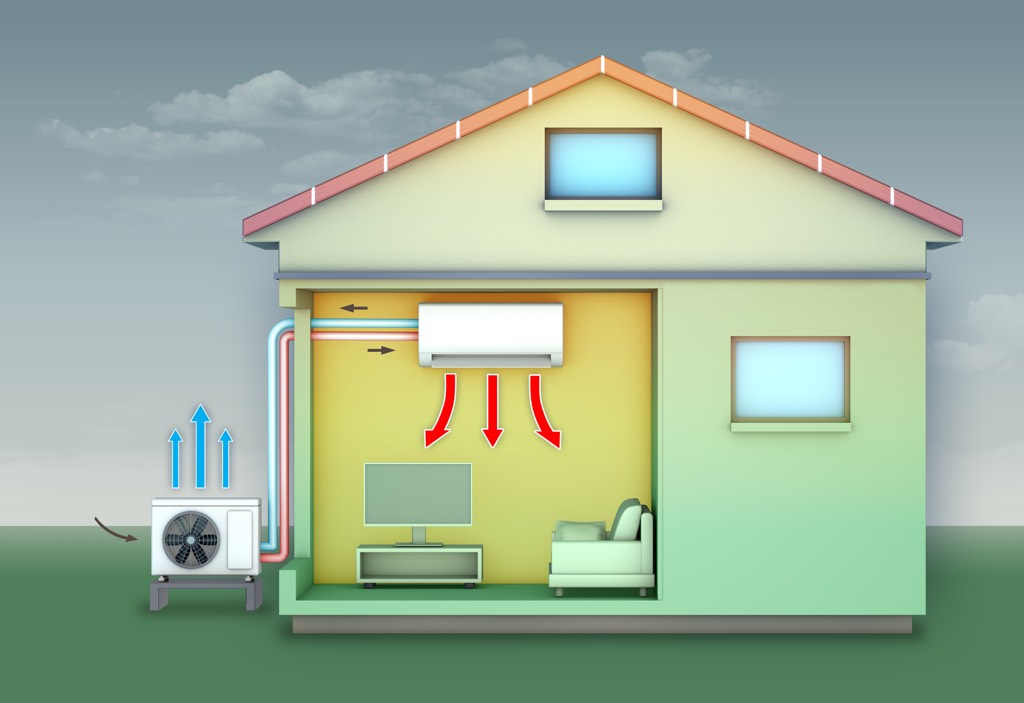What does installing a heat pump involve?
At its simplest, a heat pump works like a fridge in reverse. A fridge takes hot air out of your fridge and expels it into the atmosphere. A heat pump takes heat from outside your home, compresses it and distributes it inside. But not every house is suitable for a heat pump.
There are different types of heat pumps. Some take heat from the air outside (air source) and some take heat from the ground (ground source). Certain types of heat pumps distribute the heat generated via hot air pumped into your home (air to air). Other types heat up water inside the home. They then circulate it through a radiator system like a traditional gas boiler (air to water).
Air to air heat pumps, will only heat your home, not your hot water. You will require another solution for that. They are also generally more suitable for homes with a more open plan design as air can circulate freely between the rooms. For this reason, in the UK, air to water heat pumps are the most popular. These can heat your home and your water. In theory, you can slot them in easily to replace a gas boiler.
Installing a heat pump is generally not the tricky bit. Although a ground source heat pump requires a certain amount of land to lay the pipes in, an air source heat pump just requires a small outside space with a good flow of air. You can find out more about air source and ground source heat pump installation in our detailed articles.
How a heat pump disperses heat
The complication is that engineers design heat pumps to run at lower temperatures than traditional gas boilers. Typically a heat pump will run around 55°C, compared to 70°C for a gas boiler. For a heat pump to perform well in our cold climate, this has certain implications:
- The heat must be retained well inside the home
- The heat generated must be dispersed over a wider area
How well does your home retain heat?
This is probably the biggest question when asking yourself if your house is suitable for a heat pump. Heat pumps work very well in the UK, but in general they do not generate as much heat as a traditional gas boiler. This means that it’s even more important to not let that precious heat escape.
How well your home retains heat is going to be the most important factor.
Generally speaking the more modern your house is, the better the heat retention is going to be. Modern building methods are very stringent in this regard. If you live in a modern home (built in the last 20 years) your house is almost certainly going to have the following attributes:
- Insulated cavity walls
- Well fitted, double glazed windows and doors
- Fully insulated warm roof
- High performance loft insulation
These factors and more will make your house very suitable for a heat pump.
How old is your house?

Compared to other industrialised countries, the UK’s housing stock is very varied. Much of our housing dates back to the Victorian period, or even before. Around 20% of our private dwellings were built before 1919, according to the National Statistics agency 2021-2022 Housing Stock Report.
If your house is built before 1919, and has not been upgraded, then it is not going to be very energy efficient. As well as a ‘single skin’ (non-cavity) outer wall, the house may be drafty with old sash windows and doors. Although older houses can be adapted to work with heat pumps, the truth is that it can be expensive to do so.
Houses built after the war are more energy efficient. But it’s not until the 1970s and 1980s that energy efficient building techniques really started to take off. Houses built from this period on are generally much easier and cheaper to adapt to work with heat pumps.
How big are your radiators?
Because a heat pump runs at a lower temperature than a gas boiler, it needs to distribute heat over a wider area to achieve the same result. For an air to air heat pump, this is automatically taken care of. For an air to water heat pump, this means that you will need low temperature radiators.
We’ve covered this in more detail in elsewhere on the site, but it’s important to understand this concept. If your house is modern, it may already equipped with low temperature radiators. Many houses were over specced in recent years. But if your house was built before the turn of the century it is very unlikely to be the case.
Generally speaking, the classic steel or iron radiators that you find in houses in the UK are not the best choice. Aluminium radiators are much more effective. They heat up rapidly and transmit heat much more effectively.
Working out the radiator capacity of your home can get a bit complicated so we do recommend engaging a heating engineer. They will be able to tell you whether you’ll need a radiator upgrade.
Do you have underfloor heating?
There are two types of underfloor heating – electric and water based. Water based systems work beautifully with heat pumps as they distribute the heat over a much larger area than radiators. Putting in underfloor heating into your home is a big undertaking. But if you already have a wet system it should be fairly easy to connect it to a heat pump.
Again, we’ve written an article which goes into this in more depth.
Is my house suitable for a heat pump – summary
We hope this article has given you a general idea of whether your house might be suitable for a heat pump. It’s helpful to have a general idea. But if you’re thinking of installing a heat pump, we recommend that you first speak to an expert and book a heating survey.
A heating engineer will be able to analyse the composition of your home. They will specify a heat pump that is suits your house, but also tell you what upgrades you require to get it to run efficiently.
If you live in the UK and you think your house maybe suitable for a heat pump, you should look into government grants – in particular the boiler upgrade scheme.

